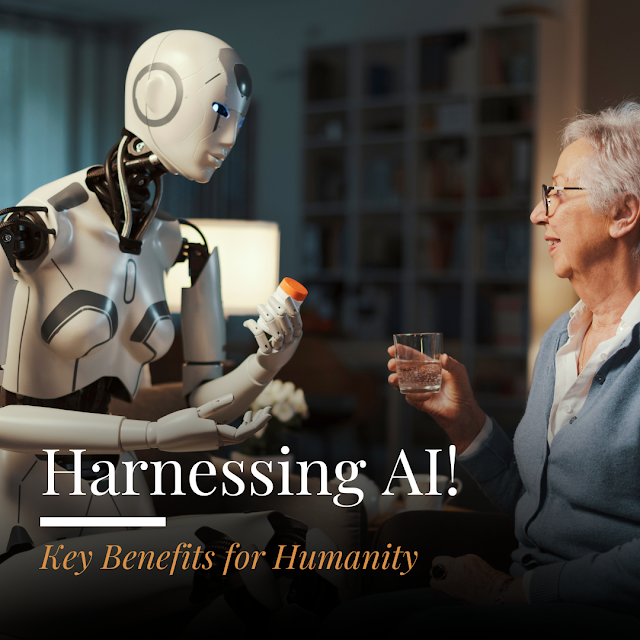Four ways in which AI can help humankind
Artificial Intelligence is receiving more than its fair share of public attention. On one side there are promises of miracles, while on the other side there are warnings of doomsday. What is probably missing is a simple listing of clear benefits. This is article is an attempt to create such a list.
Artificial Intelligence is more of an ambition than a technology. The ambition is to imitate human capabilities. Since human capabilities range from walking to solving mathematical problems, AI also encompasses systems of various types – ranging from the humble calculator to Google’s DeepMind.
In this article, I am majorly referring to the AI systems that try to achieve the cognitive abilities of human beings. Cognitive abilities refer to the processes of our mind such as understanding, reasoning, planning and selecting the right action. Understanding a question and supplying the right answer from our memory is an example of cognitive ability, the one that AI systems called ‘chatbots’ try to imitate.
Cognitive systems are currently in their initial phase of development. Once they come close to human beings in their competence, they can prove useful to humankind in a number of ways. Here are some:
1. Better utilization of resources: In our current world, it requires a human being to use resources. For example, a car needs a driver. Platforms like Uber have made it possible to share your car when you don’t need it, but it still requires a skilled human being. Talk to your Ola or Uber driver and you will realize that they are already working at the limit of their capacity. A cognitive system driving vehicle will use them much more efficiently. You will actually need much fewer vehicles than you need today (and probably a lot lesser parking!). This is true of most other resources.
2. A fairer society: Human beings have many faults in their thinking. In another article I have highlighted this faults, called biases. These biases have their roots in the evolution, so the AI systems will (hopefully) not have them. ( Pl see http://blog.cerelabs.com/2017/06/will-ai-evolve-to-be-as-bad-as-humans.html). This will make decision making at all level fairer for the people. To take an example, typecasting is a very strong bias that we suffer from. This affects decisions taken by, say an interviewer. We can hope to see much fairer selection processes in the future. For an interesting example of how statistics can help to break biased notions, see the movie or read the book ‘Moneyball’.
3. Repositioning of human efforts: World over, a large number of people are engaged in time consuming tasks that require moderate cognitive ability. Take for instance cooking. A big part of a woman’s day in India is spent in preparing food. Cognitive systems such as robot chefs can easily take over these jobs, freeing up a lot of time that can be invested in more valuable responsibilities like education of the children. In the industries, as the simpler tasks are done by cognitive systems, humans can move up the value chain, pushing the efficiency of the enterprise higher.
4. Improved care: Currently, care of patients, elderly and disabled is primarily a human responsibility. Many times, this compromises the quality of care as people cannot take out so much time from their daily activities. Cognitive systems can make the life of those in need of care much better. They can talk to the elderly and carry the disabled to places otherwise difficult to reach. The systems can keep an eye on chronic patients, not just reminding but making sure their regimen is adhered to.
This is of course just a small contribution to an ever growing list of benefits. While we keep our eyes open to the warnings given by the likes of Stephen Hawking and Elon Musk, we should continue in our efforts to harness the power of AI for these benefits.
By Devesh Rajadhyax
Co-Founder, Cere Labs





Comments
Post a Comment